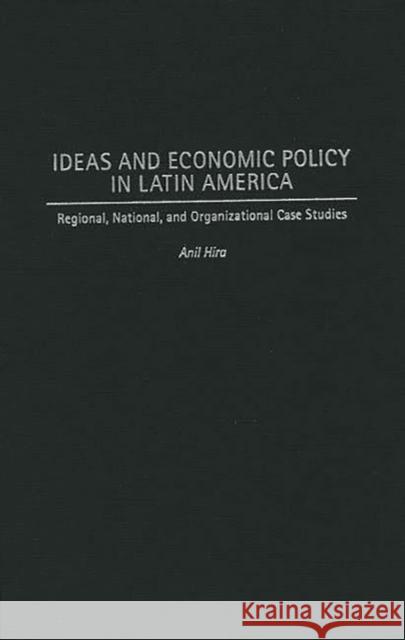Ideas and Economic Policy in Latin America: Regional, National, and Organizational Case Studies » książka
Ideas and Economic Policy in Latin America: Regional, National, and Organizational Case Studies
ISBN-13: 9780275962692 / Angielski / Twarda / 1998 / 200 str.
Ideas and Economic Policy in Latin America: Regional, National, and Organizational Case Studies
ISBN-13: 9780275962692 / Angielski / Twarda / 1998 / 200 str.
(netto: 341,60 VAT: 5%)
Najniższa cena z 30 dni: 355,74
ok. 30 dni roboczych
Bez gwarancji dostawy przed świętami
Darmowa dostawa!
How are the economic policies which developing countries adopt selected and how do they change? Who are the key players in economic development policies? Professor Anil Hira answers these questions head on by suggesting new ways of looking at how ideas affect economic policy. He first traces the way that ideas become wedded to interest groups over time, and he interprets the debate over economic development policy as a series of changes in idea-interest networks, often marked by crises. He then looks closely at economic idea entrepreneurs.
Through concrete case studies of networks in Latin America, with a focus on Chilean economic policy, Hira explains not only how ideas are introduced, but which ones win out in the economic policy process and why. He introduces the concept of economic knowledge networks to understand groups of economists wedded to certain sets of ideas, such as neoliberalism or structuralism. Economic knowledge networks extend beyond Latin America and can be found in such diverse places as Indonesia and Egypt. Hira identifies the characteristics of these groups and shows how they create political action through their organizational activities and ideas. Hira not only sheds light on how ideas affect economic policy, but also provides an inside story on the groups responsible for the new economic revolution that is sweeping Latin America and transforming the regional economy. An important resource for scholars, students, and policy makers involved with international political economy, emerging economies, and Latin American studies.











